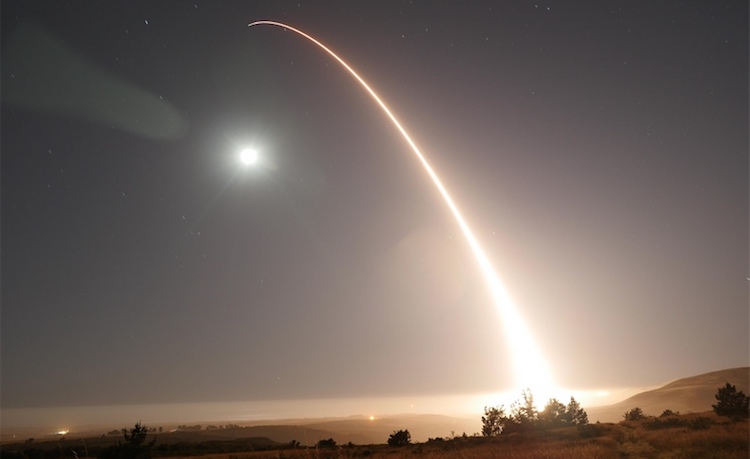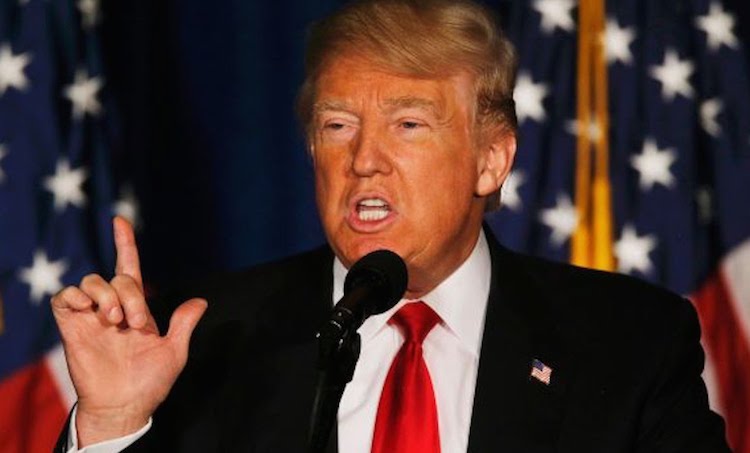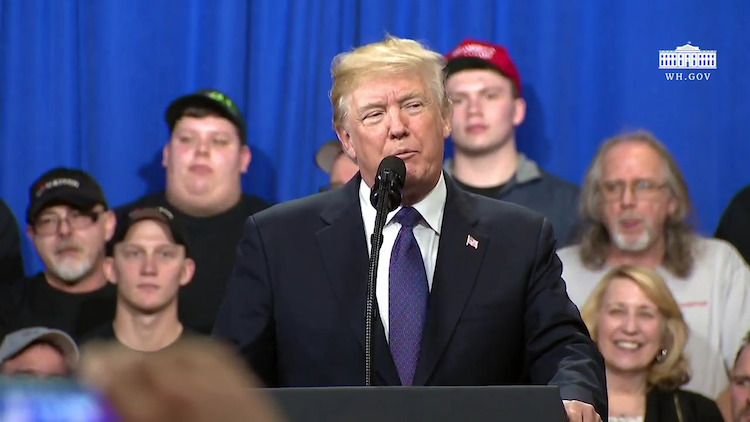By Barack Obama The following is the text of former President Barack Obama’s remarks on his successor Donald Trump’s decision on May 8, 2018 to withdraw the U.S. from the Iran nuclear deal. The original appeared on Obama’s Facebook https://www.facebook.com/barackobama/posts/10155854913976749 – The Editor WASHINGTON, D.C. (IDN-INPS) – There are few issues more important to the […]
US Launches Minuteman III Missile Test in Cloud of Secrecy
NEW YORK (IDN) – With little prior notice from military officials, the U.S. launched a Minuteman III Ballistic Missile on April 25 morning at approximately 5:26 a.m. from Vandenberg Air Force Base. Civilians and residents living near the base, who regularly receive ample notice of missile tests, were left in the dark this time as […]
‘Fire and Fury’ in Danger of Becoming Trump’s ‘Mantra’
Viewpoint by Jonathan Power* LUND, Sweden (IDN-INPS) – A speech of General George Patton, a famous World War 2 warrior, has an uncanny resemblance to the philosophy of Donald Trump. “All real Americans love the sting and clash of battle. Americans love a winner and will not tolerate a loser – Americans despise cowards. Americans […]
Trump Ends Deportation Protection for Liberians in the U.S.
By Lisa Vives, Global Information Network NEW YORK | MONROVIA (IDN) – Liberians living in the U.S. since a devastating civil war that took 250,000 lives from 1989 until 1997 are now in the crosshairs of the current Trump administration which has terminated their protected status with effect from March 31, 2019. Some five thousand […]
Bolton’s Policy Opinions Would Worsen Proliferation Dangers
By Daryl G. Kimball Daryl G. Kimball is Executive Director of the Arms Control Association. Following is the text of his statement on the choice of John Bolton, former U.S. Permanent Representative to the UN in New York, as President Donald Trump’s National Security Advisor. WASHINGTON, D.C. (IDN) – The United States already faces an […]
US Foreign Policy and Trump’s Contradictions – Part 5
Viewpoint by Michele Nobile* This is the fifth of a five-part article looking at US foreign policy in historical context and its global implications under President Donald Trump. BERGAMO, Italy (IDN) – If Trump wanted to be unpredictable, he certainly succeeded. It is the reason for the uncertainty, confusion and variety of assessments about the […]
US Foreign Policy and Trump’s Contradictions – Part 4
Viewpoint by Michele Nobile* This is the fourth of a five-part article looking at US foreign policy in historical context and its global implications under President Donald Trump. BERGAMO, Italy (IDN) – All US administrations between the twentieth and twenty-first centuries have experienced considerable fluctuations, both in the face of development of their actions and […]
US Foreign Policy and Trump’s Contradictions – Part 3
Viewpoint by Michele Nobile* This is the third of a five-part article looking at US foreign policy in historical context and its global implications under President Donald Trump. BERGAMO, Italy (IDN) – The development of capitalism is global but structurally unequal: its contradictions are also expressed through the hierarchy of the system of States. And, […]
US Foreign Policy and Trump’s Contradictions – Part 1
Viewpoint by Michele Nobile* This is the first of a five-part article looking at US foreign policy in historical context and its global implications under President Donald Trump. BERGAMO, Italy (IDN) – During a speech on foreign policy in April 2016, US President Donald Trump thundered: “We are totally predictable. We tell everything. We’re sending […]
US Tax Reforms Affect 50% of Global Foreign Direct Investment
By Jaya Ramachandran GENEVA (IDN) – Almost half of global investment stock is either located in the United States or owned by American multinationals abroad. The United States ‘Tax Cuts and Jobs Act’, adopted in December 2017, will therefore significantly affect both investment into the U.S. and the investment positions of U.S. firms abroad, according […]










